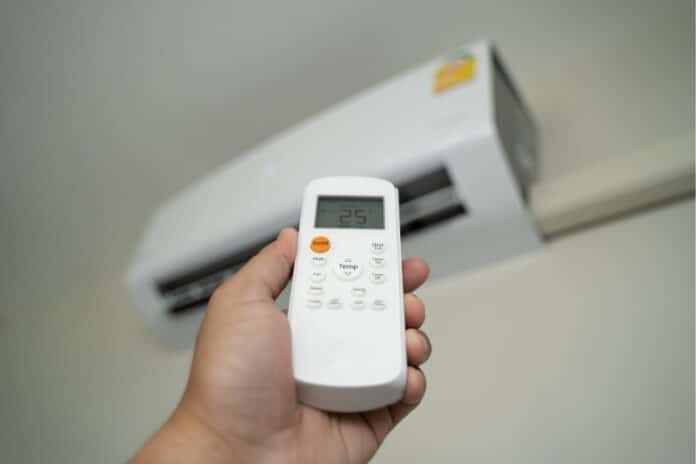
The role of air conditioning efficiency in our lives is often underestimated, especially when considering energy consumption. By understanding the fundamentals of air conditioning efficiency, we can employ strategies for improvement, resulting in significant energy savings.
The points that follow will guide you through the understanding of your air conditioning system, inform you on the necessity of maintenance, and help you realise the benefits of systematic approaches in harnessing its optimum efficiency.
The Importance of Efficient Air Conditioning
When operating at maximum efficiency, air conditioning systems are a boon for temperature management. However, sub-par units are a significant drain on energy resources, both in terms of individual consumption and at a larger environmental scale.
More efficiency optimally means less stress on the environment – high energy consumption translates to an excessive carbon footprint. The less energy we consume, the less strain we place on our resources, ensuring a healthier environment for future generations.
The economic implications of inefficient air conditioning systems can’t be ignored either. The cost difference between running a highly-efficient unit and a poorly-performing one can be significant, leading to increased power bills. This increased financial burden can be significantly reduced by optimizing your air conditioning efficiency.
In contrast, efficient air conditioning provides concrete benefits. Reduced energy bills and diminished carbon emissions aside, higher efficiency typically equals improved cooling performance. This leads to a noticeably more comfortable environment, no matter what the outside weather might be.
Understanding Your Air Conditioning System
At its core, an air conditioner acts like a heat pump, transferring heat from inside your home to the outdoors. This magic happens thanks to a closed loop containing refrigerant, a specialized fluid. The compressor pressurises the refrigerant, heating it up. The hot refrigerant then travels to the outdoor condenser coil, where it releases heat to the surrounding air.
The cooled refrigerant then flows to the indoor evaporator coil, where it absorbs heat from the air inside your home. This cycle repeats, creating a continuous flow of cool air.
Several key components play crucial roles in this process:
- Thermostat: Your command centre, it tells the system when to turn on and off based on your desired temperature.
- Compressor: The workhorse, it pressurises the refrigerant, requiring the most energy.
- Condenser coil: Located outdoors, it releases heat to the environment.
- Evaporator coil: Located indoors, it absorbs heat from your home’s air.
Several factors can hinder your AC’s efficiency: clogged air filters, dirty coils, inefficient ductwork leaks, and improper thermostat settings. Think of them as roadblocks slowing down the heat transfer process.
Regular maintenance, like cleaning filters and scheduling professional checkups, keeps these roadblocks clear, ensuring smooth operation and lower energy consumption.
By managing these components effectively, you can significantly impact your energy consumption and comfort. Regularly cleaning filters, sealing leaks, and ensuring proper insulation all contribute to a smoother, more efficient operation.
Remember, a well-maintained air conditioning system not only saves you money, but also keeps your home cool and comfortable, making those hot summer days a breeze.
Essential Maintenance for Efficient Air Conditioning
Routine maintenance is the infusion of long life and optimal operation in an air conditioning system. Undertaking regular tasks such as meticulously cleaning and timely replacing of the filters is a necessity for augmenting the efficiency of your air conditioning system – a dirty filter restricts airflow and reduces the overall performance.
Regular professional servicing allows a trained specialist to inspect, clean, and, if required, repair your air system components. These professionals can identify complex issues like refrigerant leaks or sensor problems that might not be evident to a layperson.
Learning to identify early signs of inefficiency and taking immediate corrective actions is indispensable in maintaining optimal air conditioning efficiency.
Innovative Techniques to Boost Air Conditioning Efficiency
Technological advancements have given us revolutionary techniques to hone air conditioning efficiency. For instance, the correct usage of thermostat settings can make a significant impact on energy savings; ideally, the thermostat setting should be around 24-26 degrees Celsius during the summertime.
Additionally, modern-day air conditioning systems come equipped with energy-saving modes and employ smart technology rosters. These inventive techniques help in a more streamlined regulation of power consumption. In line with the global shift towards renewable energy resources, solar-powered air conditioning units are also becoming increasingly popular.
Overcoming Common Barriers to Efficient Air Conditioning
There are common barriers that may hinder the efficient functioning of your air conditioning system. These include inadequate insulation, inappropriate size of the air conditioner for your space, and incorrect temperature settings, amongst others. These potential roadblocks can be easily bypassed with in-depth understanding and diligence.
Regular inspections of your air conditioning unit, swift response to abnormalities, and consistent adherence to scheduled maintenance can bolster your system’s optimal functioning. Sometimes, overcoming these hurdles may necessitate investing in a newer, more efficient air conditioning system, especially if your existing unit is aged or inherently inefficient.
Conclusion
In conclusion, optimizing air conditioning efficiency is a crucial factor in managing energy consumption, reducing unnecessary expenditure, and ensuring the desired level of comfort.
By gaining knowledge on the functioning of your air conditioning system, performing crucial maintenance, utilizing modern techniques, and surmounting potential efficiency barriers, you are well on your way towards achieving substantial energy savings.
Seeking energy-efficient air conditioning solutions? Ask a professional electrician for help. It is always advised to seek professional assistance when in doubt. Your every effort towards energy conservation is a valuable contribution not just in your savings but also to our collective responsibility towards the environment.





